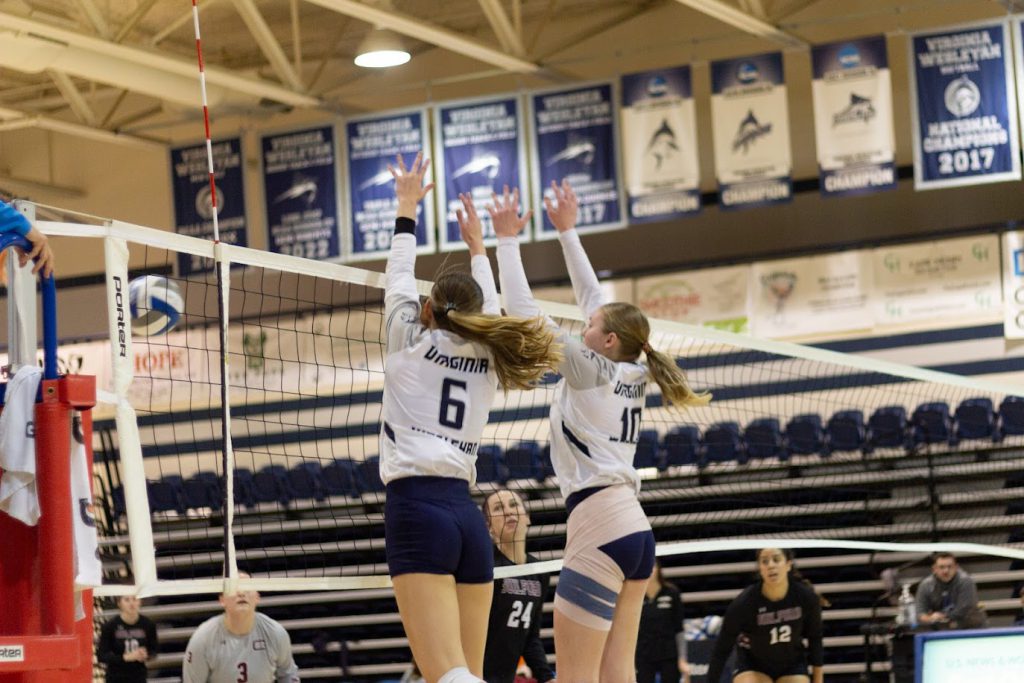Dani is a senior Biochemistry major and plays field hockey. Her other involvements include being a resident assistant, Wesleyan ambassador, STEM ambassador, orientation leader, teaching assistant and secretary of Gamma Sigma Epsilon and Member of Omicron Delta Kappa and Sigma Gamma.
Virginia Wesleyan University’s athletic legacy is anchored in grit, teamwork and success. As a student-athlete, I witness daily the devotion that both players and coaches bring to representing the Marlins. Yet behind our victories lies a growing challenge: retaining coaches long-term.
Some VWU programs enjoy remarkable consistency. Men’s Basketball, Softball and Women’s Soccer, for instance, benefit from coaches who have led their teams for more than 18 seasons, establishing deep-rooted traditions and trust. In contrast, other sports, like Track and Field, Women’s Lacrosse, Field Hockey and Cross Country, have faced more frequent turnover. While change is part of sport, repeated transitions disrupt beyond the field.
Every time a coach departs, players must adapt swiftly to new systems, leadership styles and expectations, often during the academic year’s most demanding stretches. Beyond that, turnover interrupts recruiting pipelines, training stability and the mentorship that plays a critical role in our development as student-athletes.

Senior Dani Poulsen says she believes wages are a factor in coaches leaving.
Photo: James Hill | Courtesy
Financial realities are often at the heart of these departures. VWU is a Division III institution, and salaries naturally fall below Division I or II levels. Locally, in Lynchburg, College Head Coaches earn an average of approximately $80,700 per year, with most falling between $64,900 and $109,500, according to salary.com. In contrast, head coaches at VWU average significantly less, with men’s team coaches earning around $63,008 annually and women’s teams’ coaches around $49,991, according to collegefactual.com.
Beyond VWU’s figures, other ODAC institutions appear to offer more competitive compensation which are further incentivizing coaches to leave. For example, at Randolph-Macon College, coach salaries range from $48,000 to $89,000, with a median total pay of $63,000, according to glassdoor.com. In Lynchburg more broadly, according to salary.com, coach salaries average near $57,600, with many earning between $43,000 and $78,000, indicating that VWU sits at or below typical regional levels.
The consequences of this pay gap are tangible. When coaches leave, the networks they’ve built with recruiters, alumni and scouts often dissipate. That impacts athletes’ visibility and opportunities beyond college. In sports like Field Hockey and Women’s Lacrosse, where mentorship and continuity are vital, the turnover can hinder both personal growth and team stability.
Many ODAC programs, such as Randolph-Macon, Washington & Lee and Lynchburg have invested deliberate effort to retain coaches, resulting in stronger tenure across sports. To stay competitive and continue attracting talented student-athletes, VWU must prioritize coach retention. That starts with fairer compensation, improved resources and support structures to reward long-term commitment.
As Marlins, we strive for excellence on the field and in the classroom. Supporting our coaches isn’t merely about contracts, it’s about empowering every athlete to reach their full potential. By investing in coaching stability, Virginia Wesleyan can strengthen its athletic tradition, not just for today’s teams, but for generations of Marlins to come.
By: Dani Poulsen
djpoulsen@vwu.edu


